Related Research Articles

The Eureka Prizes are awarded annually by the Australian Museum, Sydney, to recognise individuals and organisations who have contributed to science and the understanding of science in Australia. They were founded in 1990 following a suggestion by science journalist Robyn Williams.

Verity Helen Firth is an Australian university executive and former politician. She is the Pro Vice-Chancellor at the University of Technology Sydney. She was the chief executive officer of the Public Education Foundation in Australia.
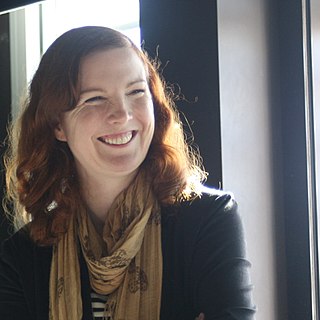
Kate Crawford is a researcher, writer, composer, producer and academic, who studies the social and political implications of artificial intelligence. She is based in New York and works as a principal researcher at Microsoft Research, the co-founder and former director of research at the AI Now Institute at NYU, a visiting professor at the MIT Center for Civic Media, a senior fellow at the Information Law Institute at NYU, and an associate professor in the Journalism and Media Research Centre at the University of New South Wales. She is also a member of the WEF's Global Agenda Council on Data-Driven Development.
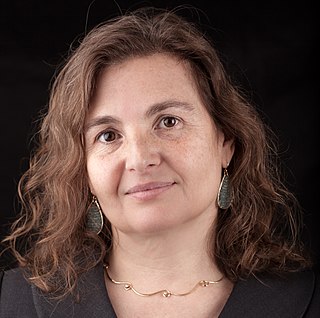
Daniela L. Rus is a Romanian-American computer scientist. She serves as director of the MIT Computer Science and Artificial Intelligence Laboratory (CSAIL), and the Andrew and Erna Viterbi Professor in the Department of Electrical Engineering and Computer Science (EECS) at the Massachusetts Institute of Technology. She is the author of the books Computing the Future, The Heart and the Chip: Our Bright Future with Robots, and The Mind's Mirror: Risk and Reward in the Age of AI.
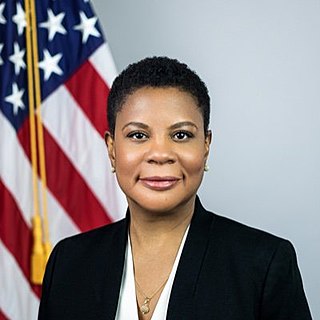
Alondra Nelson is an American academic, policy advisor, non-profit administrator, and writer. She is the Harold F. Linder chair and professor in the School of Social Science at the Institute for Advanced Study, an independent research center in Princeton, New Jersey. Since March 2023, she has been a distinguished senior fellow at the Center for American Progress. In October 2023, she was nominated by the Biden-Harris Administration and appointed by United Nations Secretary-General António Guterres to the UN High-Level Advisory Body on Artificial Intelligence.
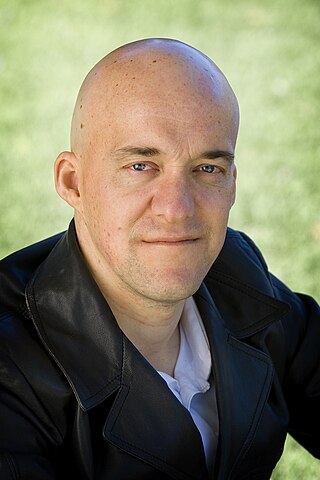
Barry William Brook is an Australian scientist. He is an ARC Australian Laureate Professor and Chair of Environmental Sustainability at the University of Tasmania in the Faculty of Science, Engineering & Technology. He was formerly an ARC Future Fellow in the School of Earth and Environmental Sciences at the University of Adelaide, Australia, where he held the Sir Hubert Wilkins Chair of Climate Change from 2007 to 2014. He was also Director of Climate Science at the Environment Institute.
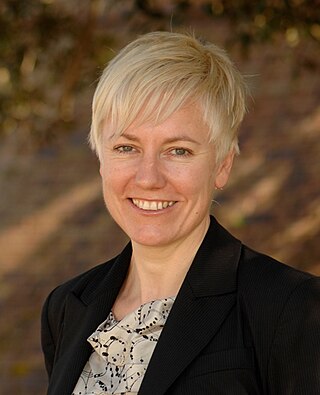
Cate Faehrmann is an Australian politician and environmental activist. Faehrmann was a Greens member of the New South Wales Legislative Council from 2011 to 2013. She resigned from the Legislative Council in June 2013 to stand for the Senate at the federal election of the same year, and was unsuccessful in obtaining a seat. She worked in the office of the Leader of the Australian Greens, Richard Di Natale, as his chief of staff from May 2015 to March 2018. In August 2018, she was re-elected to the Legislative Council to fill the casual vacancy caused by the resignation of Mehreen Faruqi, who had replaced Lee Rhiannon in the Australian Senate.

Genevieve Bell is the Vice-Chancellor of the Australian National University and an Australian cultural anthropologist. She is best known for her work at the intersection of cultural practice research and technological development, and for being an industry pioneer of the user experience field. Bell was the inaugural director of the Autonomy, Agency and Assurance Innovation Institute (3Ai), which was co-founded by the Australian National University (ANU) and CSIRO’s Data61, and a Distinguished Professor of the ANU College of Engineering, Computing and Cybernetics. From 2021 to December 2023, she was the inaugural Director of the new ANU School of Cybernetics. She also holds the university's Florence Violet McKenzie Chair, and is the first SRI International Engelbart Distinguished Fellow. Bell is also a Senior Fellow and Vice President at Intel. She is widely published, and holds 13 patents.
Marita Cheng is the founder of Robogals. She was named the 2012 Young Australian of the Year. She is the founder and current CEO of Aubot, a start-up robotics company. She co-founded Aipoly, an app to assist blind people to recognise objects using their mobile phones. She was named as one of the World's Top 50 women in Technology by Forbes in 2018 and was recognized on the Forbes 30 Under 30 list in 2016. On 9 June 2019, Cheng was appointed a member of the Order of Australia for significant service to science and technology, particularly to robotics.

Distinguished Professor David Lindenmayer,, is an Australian scientist and academic. His research focuses on the adoption of nature conservation practices in agricultural production areas, developing ways to improve integration of native forest harvesting and biodiversity conservation, new approaches to enhance biodiversity conservation in plantations, and improved fire management practices in Australia. He specialises in large-scale, long-term research monitoring programs in south-eastern Australia, primarily in forests, reserves, national parks, plantations, and on farm land.

Emma Letitia Johnston is an Australian marine ecologist and academic. As of 2024 she is the Deputy Vice Chancellor (Research) at the University of Sydney, due to take up her appointment as Vice Chancellor of the University of Melbourne from February 2025. She was formerly dean of science and Pro Vice-Chancellor (Research) at the University of New South Wales, as well as president of Science & Technology Australia.
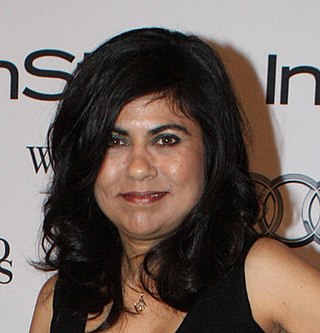
Veena Sahajwalla is an Indian inventor who is Professor of Materials Science in the Faculty of Science at UNSW Australia. She is the Director of the UNSW SM@RT Centre for Sustainable Materials Research and Technology and an Australian Research Council Laureate Fellow.
Mary Josephine O'Kane, AC an Australian scientist and engineer, is the Chair of the Independent Planning Commission of New South Wales. She is also a company director and Executive Chairman of O’Kane Associates, a Sydney-based consulting practice specialising in government reviews and research and innovation advice to governments in Europe, Asia and Australasia.
Penelope Figgis is an Australian environmentalist, activist, and political scientist. Since 2005 she has been the Vice Chair for Oceania of the IUCN World Commission on Protected Areas.

Mary-Anne Williams is an Australian researcher who is the Michael J Crouch Chair for Innovation at the University of New South Wales in Sydney Australia (UNSW), based in the UNSW Business School. Her research focuses on AI and Innovation, and she is sought after thought-leader by industry and government.
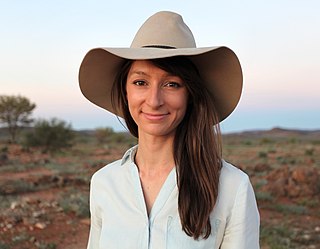
Anika Molesworth is an agroecology and scientist. She is a public figure on issues of food security, nature conservation, climate change and rural community development. Molesworth currently sits on the Board of Directors of Farmers for Climate Action, the NSW committee of the Crawford Fund, and is a Governor of WWF-Australia.
Jamila Gordon is a Somali Australian entrepreneur. She is the chief executive officer and founder of an Australian SaaS company applying AI and Blockchain to food supply channels (Lumachain). After escaping the Somalian Civil War at the age of eighteen, she was a displaced person in Kenya before moving to Australia, where she received a degree in IT from the La Trobe University. Gordon later served as the CIO at Qantas and Leighton Holdings/CIMIC, and as an executive at IBM. She was subsequently named as Microsoft's Global Awardee in the International Women's Entrepreneurship Challenge 2018, Australia & New Zealand Innovator of the Year in the Women in AI Awards 2020, NSW Pearcey Entrepreneur of the Year 2021. She was recognized as one of the BBC's 100 women of 2021.
Anjali Sharma is an Australian climate activist who was the lead litigant in a class action in the Australian Federal Court, seeking an injunction against the Australian Government and the Minister for the Environment for failing to consider the impacts of climate change when approving a coal mining permit. While no injunction was issued, the principle that the government had a duty of care to prevent certain impacts was established. The government appealed against this part of the ruling and won. Sharma was a finalist in the 2021 Children's Climate Prize, an international prize for climate activism, based in Sweden.
Parwinder Kaur is an Indian-born biotechnologist who is Director of the DNA Zoo Australia, and associate professor at the University of Western Australia. Her research involves genomic techniques to help conservation efforts for threatened and endangered species. On International Women's Day in 2023, Kaur was inducted into the WA Women's Hall of Fame.
Clara Chow is an Australian cardiologist who is the program director of community-based cardiac services at Sydney's Westmead Hospital. She is a professor of medicine at the University of Sydney in the field of cardiovascular disease epidemiology, prevention, treatment and innovation. In 2019, she was appointed the academic director of the Westmead Applied Research Centre, a collaborative centre with a mission to better understand the causes of cardiovascular disease and translate their research to new treatments. She has also held the role of academic co-director of the Charles Perkins Centre since 2016.
References
- ↑ "Women in AI Awards 2022: Winners". Digital Nation. Retrieved 19 August 2023.
- ↑ "Women in AI Awards 2022 ANZ". Monash Data Futures Institute. Retrieved 19 August 2023.
- ↑ "The future of: The climate with Camille Goldstone-Henry, Xylo Systems". UNSW Sites. Retrieved 19 August 2023.
- 1 2 Ansett, Claire (16 June 2023). "Conversation with Camille Goldstone Henry". Wilderlands.
- ↑ "Interview Camille Goldstone-Henry CEO of Xylo Systems". Purpose Conference. Retrieved 19 August 2023.
- ↑ "Camille Goldstone-Henry is on a mission to improve conservation projects - she's also our Women of the Future Winner for 2021". Now To Love. Retrieved 19 August 2023.
- ↑ Goldstone-Henry, Camille. "CV". LinkedIn . Retrieved 20 August 2023.
- ↑ "Xylo Systems Offer An Easier Way To Measure And Track Biodiversity Impact Across Multi-Stakeholder Projects". Startmate. Retrieved 22 July 2024.
- ↑ Ho, Vanessa (28 June 2023). "Entrepreneurs are bringing new ideas and technologies to preserve the planet". Microsoft News. Retrieved 21 August 2023.
- ↑ Connellan, Pamela (6 December 2021). "Camille Goldstone-Henry Wins Award For Her Platform To Save Endangered Species". Women Love Tech. Retrieved 19 August 2023.
- ↑ "Science grad wins big with biodiversity tech start-up". The University of Sydney. 25 January 2022. Retrieved 19 August 2023.
- ↑ "Camille Goldstone-Henry - Co-Founder at Xylo Systems | TechSydney". www.techsydney.com.au. Retrieved 19 August 2023.
- ↑ "Episode #26: Climate change and conservation through AI – Camille Goldstone-Henry | Thousand Eyes On Me". 5 September 2022. Retrieved 19 August 2023.
- ↑ "Let's talk robotics with Dr Camille Goldstone-Henry". EXAPTEC. 2 June 2022. Retrieved 19 August 2023.
- ↑ "CAMILLE Goldstone-Henry Xylo Systems - presenter". Purpose Conference. Retrieved 19 August 2023.
- ↑ "The future of: The climate with Camille Goldstone-Henry, Xylo Systems". UNSW Sites. 3 March 2023. Retrieved 19 August 2023.
- 1 2 Myles, Indio (23 August 2022). "Camille Goldstone-Henry On AI Technology Preventing Biodiversity And Habitat Loss". Impact Boom | Social Impact Blog & Podcast | Global Changemaker Community | Social Innovation, Enterprise, Design. Retrieved 19 August 2023.
- ↑ Thomsen, Simon (3 October 2022). "Female-founded threatened species startup Xylo Systems is one of 8 ventures backed by Investible's new Climate Tech fund". Startup Daily. Retrieved 19 August 2023.
- ↑ "Women of the Future Winner 2021: Camille Goldstone-Henry". Marie Claire. 12 January 2022. Retrieved 19 August 2023.
- ↑ Marchetta, Ilona (13 July 2023). "Women Love Tech SXSW Sydney Panel Announced: Changing The Face Of The Tech Industry". Women Love Tech. Retrieved 19 August 2023.
- ↑ "NSW Women of Year Awards finalists announced". Mirage News. 4 March 2022. Retrieved 19 August 2023.
- ↑ "Camille Goldstone-Henry". Science and Technology Australia. Retrieved 28 December 2024.